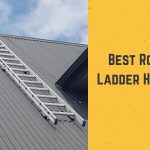
USER INSTRUCTIONS
TYPE IA 300 LBS [136 KG] EXTRA HEAVY DUTY RATED
Congratulations on your purchase of the Little Giant® Velocity™. These instructions will help you make the most of your Little Giant Velocity by learning how to use it safely. Please do not ignore the instructions, study them! If you have questions about how to operate your ladder system, please search our safety resources at www.LittleGiantLadders.com/SafetyToolbox, or call us before using your ladder system. Your safety and satisfaction is most important to us.
These instructions will show you how to use the Velocity as a multiple-height extension ladder, stepladder, staircase ladder, 90-degree ladder, and as a trestle-and-plank scaffolding system. To learn more about accessories and
other Little Giant ladder products, please visit our website at www.LittleGiantLadders.com or call our Customer Experience Team.
Welcome to the Little Giant family!
Customer Care: 800-453-1192 or 801-489-3684 • Monday – Friday, 7am – 5pm MST
Little Giant Ladder Systems • 1198 North Spring Creek Place • Springville, UT 84663 • USA www.LittleGiantLadders.com
Table of Contents
GETTING TO KNOW YOUR LADDER
The Little Giant Velocity is a multi-use ladder system made up of three major components: one inner ladder assembly and two outer ladder assemblies that telescope over the inner section. The inner and outer assemblies work together with the hinge locks and the Rock Locks to adjust the ladder into different lengths and positions, including:
- Extension
2. A-Frame stepladder
3. Trestle-and-plank scaffolding system (sold separately)
4.90-degree (only used against a secure wall)
5. Staircase

GENERAL OPERATING SAFETY TIPS
- Do not force the hinges in or out using any tools. You may cause permanent damage to the hinge mechanism.
2. If there is pressure on the hinge lock pins, they may not open properly. Relieve the pressure by moving one half of the ladder back and forth until the hinge locks move with minimal force.
3. Make sure each Rock Lock is fully engaged into the appropriate rung tube before climbing on the ladder. Failure to do so may result in injury.
4. For your safety, set up your ladder so the rungs are always level from front to back and from side to side.
5. Keep clothing and body parts out of all moving mechanisms, including the hinge locks and Rock Locks to avoid pinching.
6. Keep clothing and body parts away from rungs when telescoping the outer ladder over the inner ladder.
7. Use caution when using the ladder around electricity. Ensure that the ladder does not come in contact with electrical circuits or currents.
8. The Velocity has an OSHA and ANSI Type IA duty rating of 300 pounds. For your safety, do not exceed the weight limit.
9. Do not stand above the third rung from the top.
10. Little Giant Ladder Systems assumes no liability for damage or injury that may result from failing to follow all instructions correctly.
11. Keep all ladder rungs, ladder feet, work platforms, and other standing and gripping surfaces clean and free from foreign materials.
12. Do not lean too far over the side of the ladder and keep both feet on the rungs at all times; as a rule of thumb, keep your navel between the rails.
13. Inspect feet for wear; replace them when necessary.
14. Read all labels on the ladder before use.
A-Frame and Staircase Ladder Safety Tips
- Ensure that the Quad-Lock hinges and Rock Locks are securely engaged before climbing your ladder.
2. Make each of your ladder’s four feet are solidly planted before climbing.
3. When using your ladder on a stair case, ensure that the rungs are level and that each foot is on a solid, secure surface.
Extension Ladder Safety Tips
1.Do not allow the full weight of the ladder to fall on the hinges as the ladder folds from the extension to the A-frame position.
2.When releasing the Rock Locks, make sure you support the inner ladder assembly with one hand to prevent it from sliding down rapidly. Failure to do so may result injury.
3.Use the proper angle for the extension ladder position. The distance from the base of the ladder to the bottom of the support wall should be one-fourth the working height of the extension ladder (minimum distance between ladder and support wall must be 3 feet).
4.Fully engage the hinge locks and Rock Locks before use, failure to do so may result in injury.
5. When using your Velocity as a tall extension ladder, stake the feet to the ground and tie down the top for extra security. Extend the ladder at least 3 feet above a supporting roof or eve.
Scaffolding Safety Tips
1.Do not use outer or inner sections of the ladder as a separate stepladder.
2.Be sure to set the two outer ladder assemblies with the rungs facing out with the trestle brackets properly engaged.
3.When the scaffolding plank is above the third rung (three feet high), it may be used as a work bench, but not as a standing platform.
4.ANSI rules state that the scaffolding plank should not be used as a standing platform at heights greater than three times the minimum width of the base section.
5.The scaffolding system has a one-man, 250-pound rating.
6.Only one person should be on the scaffold plank at a time.
Work Platform Safety Tips
1.If you purchased a Work Platform for your Velocity, you can use it as an additional tool tray or as a standing platform.
2.Do not use the Work Platform as a standing platform above the third rung from the top, in either A-frame and extension configurations.
3.Make certain the Work Platform is secure on the rung before standing on it.
Register Your Warranty
The Velocity ladder is offered with a lifetime warranty against manufacturer defects. Register your warranty within 30 days after receipt of the product. You may register your product by going online to www.LittleGiantLadders.com/registration or by completely filling out the warranty card and mailing it in.
LADDER OPERATION
Hinge Locks
Change your ladder’s shape.

Push the Palm Buttons in to release the Hinge Locks. Make sure both Hinge Hocks are locked before climbing.

The Hinge Locks allow the ladder to change between storage, A-frame, and extension positions
Rock Locks®
Change your ladder’s height.

The Rock Locks adjust the height of the ladder. Push in on the bottom of the Rock Locks to unlock, tap the Rock Locks into the desired rung tube to lock.
Unlock only one Rock Lock at a time while supporting the inner ladder aseembly with one hand. Never unlock the Rock Locks if anyone is on the ladder. Make sure all four Rock Locks are locked before climbing.

Adjust to the desired height.
Extension

Open and lock your ladder into the extension position, and lay it face up on the ground with the feet near the wall. If your ladder has wheels, they should be on the end farthest from the wall. Unlock the Rock Locks on the top outer section and extend it to the desired height, locking both Rock Locks when finished. If you need more height, repeat this for the bottom section as well.
Next, flip the ladder over to a face-down position, and place its feet against a solid wall. Lift the other end and walk it hand-over-hand, one rung at a time, until you can lean the ladder against the wall. Then, lift the base of the ladder and carefully move it out from the wall until the ladder leans at a 75.5º angle, where the distance from the wall to the ladder’s base is 1/4 of the working length of the ladder.
Warning: If you’ll be climbing up onto a roof or elevated platform, for your safety, the ladder must extend three rungs above the height of the roof line or working surface.

To bring the ladder down, lift the base and carefully move it against the wall to brace the feet. Carefully walk the ladder down hand-over-hand, one rung at a time, until you can lay the ladder flat on the ground. Flip the ladder face up, unlock the Rock Locks, and retract both outer sections completely. Lock all four Rock Locks, then push in the Palm Buttons and return the ladder to the small A-frame position.
Warning: Never unlock both Rocks Locks on an outer section at the same time without supporting the inner section. The ladder can retract quickly and may cause injury.
A-frame position.
Warning: Never unlock both Rocks Locks on an outer section at the same time without supporting the inner section. The ladder can retract quickly and may cause injury.
A-Frame

Begin from the small A-frame position. Stand to one side of the ladder; unlock both Rock Locks on one outer section. When extending the ladder, your hands must always be on the outside of the outer section. Place one hand on the Palm Button and push the inner section away from you to extend the height. Once you have reached the desired height, line up the inner and outer rungs, place your hand under the rungs, then lock both Rock Locks.
Next, unlock the Rock Locks on the opposite section. Place one hand on the Palm Button and push up on the inner section to extend the height. Once you have reached the desired height, line up the inner and outer rungs, place your hand under the the rungs, then lock both Rock Locks.
To bring the ladder down from the A-frame position, place one hand under the inner and outer rung to secure the ladder from moving. With your other hand, unlock one Rock Lock, then switch hands and unlock the other one.
Next, place your hand on the Palm Button to hold the inner section in place before you remove your hand from keeping the inner and outer section secure.
Once your hand is out of the way of the inner and outer sections, slowly bring the inner section down by holding on to the Palm Button. Keep your hand on the outside of the outer section while adjusting the ladder.
90˚ Position

From the tall A-frame position reduce the height on one side of the ladder by one rung. Make sure the ladder is on a flat level surface and the short side of the ladder is against a secure wall.
Staircase

Start from the small A-frame position, lengthen the down side of the ladder to the desired height. Ensure the ladder rungs are level before using.
Scaffolding*

Remove the outer sections. Attach the trestle brackets.
Insert the plank at desired height.
Do not stand on the plank above the third rung. Never use either trestle as a stepladder.
*Trestle Brackets and Plank sold separately
One Ladder Does It All®

Need additional help? Visit www.LittleGiantLadders.com or call Customer Care at 1-800-453-1192, Monday – Friday, 7am – 5pm MST


